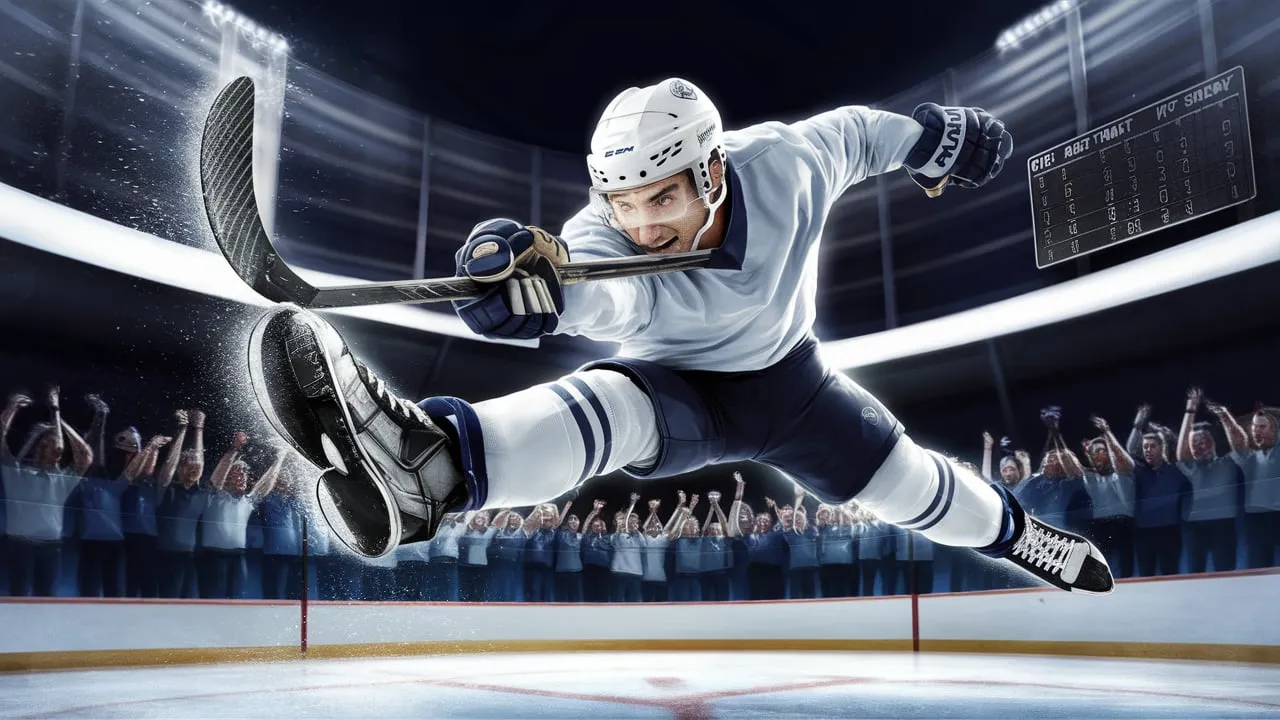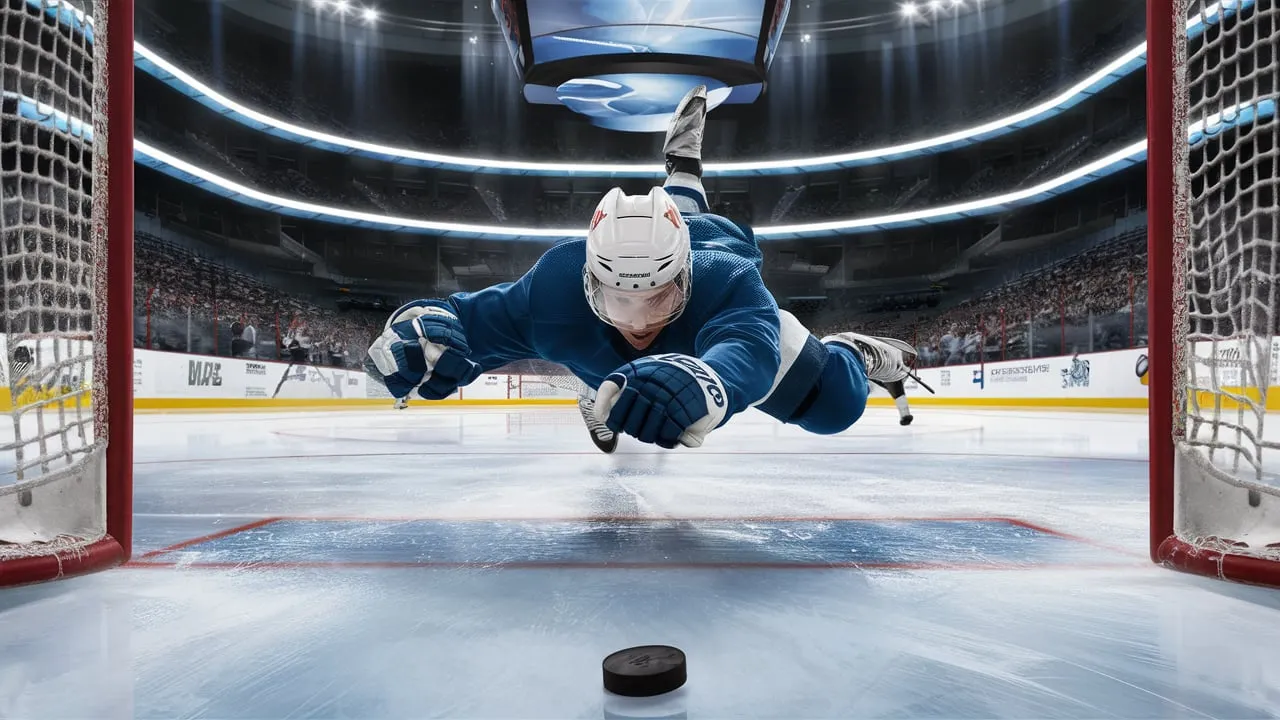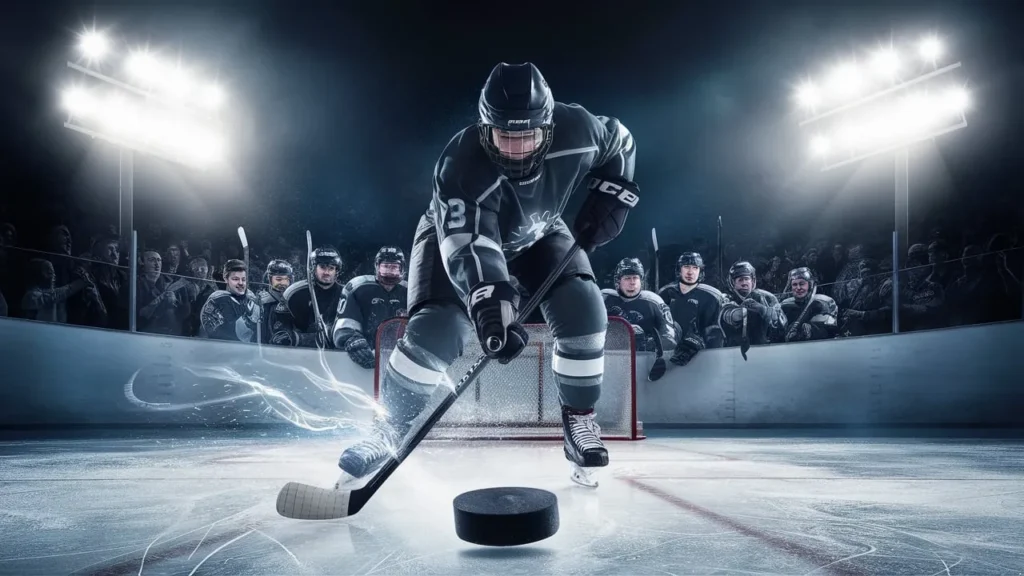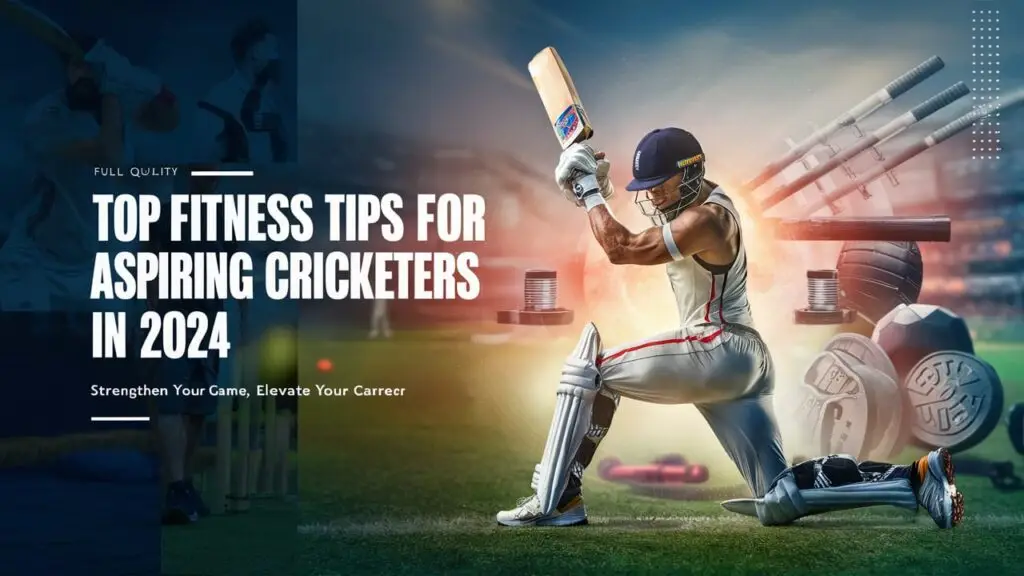Introduction
Shooting accuracy is one of the most vital skills a hockey player can possess. Whether you are an elite forward or a beginner, being able to shoot with precision can significantly elevate your game and increase your goal-scoring ability. In fact, studies show that shooting accuracy is one of the top factors in a player’s scoring efficiency. According to a NHL Analytics Report, players who shoot with high accuracy have a significantly better chance of scoring, especially in high-pressure moments. In a game where goals win championships, mastering the art of shooting accurately is crucial.
In this comprehensive guide, we will explore how to improve your shooting accuracy in hockey. From understanding the mechanics behind an accurate shot to practical drills and mental strategies, this article provides a step-by-step approach to enhancing your shooting technique. Whether you’re preparing for a competitive game or simply aiming to get better in your practice sessions, the following tips will help you develop your shooting accuracy and become a more reliable scorer.

The Importance of Shooting Accuracy in Hockey
The Impact on Your Game Performance
Hockey is a fast-paced sport where precision and timing are essential. A player who consistently hits their target has a higher chance of scoring goals, creating scoring opportunities for teammates, and establishing dominance on the ice. Research from the National Hockey League (NHL) indicates that players with higher shooting accuracy are more likely to achieve a higher shooting percentage, a stat that directly correlates with offensive success.
- Shooting Percentage: The average shooting percentage in the NHL is about 9-10%. This means that for every 10 shots a player takes, 1 or 2 of them result in a goal. However, players with elite accuracy can reach shooting percentages above 15%, a significant improvement.
- Shots on Goal (SOG): The more shots you can put on net, the more chances you have to score. However, shots on goal only matter if they’re accurate. A poorly placed shot is easily blocked or saved, whereas an accurate shot gives the goalie less room to work with, increasing the likelihood of scoring.
In short, improving shooting accuracy isn’t just about taking more shots—it’s about taking smarter, more precise shots that increase your chances of beating the goalie and putting the puck in the net.
Key Factors Affecting Shooting Accuracy in Hockey
To improve your shooting accuracy, it’s essential to understand the core elements that influence it. Here are the key factors that play a role in the precision of your shot:
1. Shot Technique
Your basic shot mechanics are fundamental to accuracy. The way you position your body, your stick, and the puck all play a crucial role in ensuring the puck goes where you intend it to. The key techniques for improving accuracy include:
- Grip and Stick Handling: A proper grip on your stick ensures better control. A loose grip, on the other hand, leads to inconsistent shots.
- Follow-through: A good follow-through ensures the puck is directed where you want it to go, while a poor follow-through can cause the shot to veer off course.
- Angle of Attack: Position your body in such a way that your shot has a clear line of sight to the goal. The more direct the angle, the less room there is for error.
2. Shot Selection
Choosing the right type of shot for the situation is just as important as executing it accurately. Some of the most common shots that require precision include:
- Wrist Shots: Known for their accuracy, wrist shots are the go-to shot for many players. They are quick, with less wind-up, and can be placed in tight spaces.
- Snap Shots: A variation of the wrist shot, snap shots are fired quickly without much winding up, making them difficult for goalies to read.
- One-Timers: These shots involve hitting the puck directly off a pass. Precision is key here, as timing and placement are crucial to beating the goalie.
Understanding which shot to take in different scenarios will allow you to make smarter decisions and increase your shooting accuracy.
3. Puck Control
A steady and controlled puck is easier to shoot accurately. If the puck is bouncing or out of position, you’ll struggle to direct it properly toward the net. Strong puck control allows you to line up your shot and ensure that it’s on target.
Drills to Improve Your Shooting Accuracy
1. Target Shooting Drills
One of the simplest and most effective ways to improve your shooting accuracy is to practice hitting specific targets in the net. Here are a few drills that can help:
- Target Practice: Set up small targets inside the net, such as cones or specific sections (like the upper corners). Aim to hit these targets with your shots. As your accuracy improves, increase the difficulty by making the targets smaller or positioning them in harder-to-reach areas.
- Crossbar Challenge: Try to hit the crossbar on purpose. This will help you develop control and the ability to consistently hit higher or lower areas of the net.
2. Shooting Off the Pass
Since many goals come from one-timers or shots off a pass, it’s essential to practice shooting off a pass. A common drill involves having a teammate or coach pass you the puck while you are in motion. The goal is to quickly settle the puck and shoot with precision while under pressure.
- Quick Release: Work on your shot release speed to make sure your shots are fast and difficult to block. The quicker you can release a shot, the more difficult it is for the goalie to react, which increases your accuracy.
3. Shooting in Motion
In a real game, you rarely have the luxury of shooting while stationary. Drills that incorporate shooting while skating can greatly improve your accuracy in game situations. Try shooting while skating at various speeds and angles to simulate game conditions.
4. Shooting with Obstacles
Adding obstacles, such as defenders or goalies, to your shooting practice can also help simulate real-game conditions. By practicing shooting under pressure, you’ll develop the ability to place your shots in tight areas and improve your accuracy.
Mental and Tactical Aspects of Shooting Accuracy
1. Visualization
Visualization techniques have been shown to improve performance in athletes. Before taking a shot, try to visualize the puck going exactly where you want it to. By mentally rehearsing your shots, you can improve your focus and mental clarity, which translates into better accuracy.
2. Focus on the Goalie’s Weak Spots
Understanding the weaknesses of the opposing goalie is key to increasing your shooting accuracy. Spend time studying the goalie’s tendencies, such as where they are most likely to leave open spaces. Most goalies have predictable patterns, such as favoring one side or dropping low. By identifying these weak spots, you can place your shots more strategically.
- High Glove Side: For many goalies, the glove side is a weak area. Aiming for the top corner on the glove side can often result in a successful shot.
- Five-hole: The space between a goalie’s legs can also be an effective target, especially if the goalie is deep in their crease or not closing their legs quickly enough.
3. Time and Space Awareness
In fast-paced hockey games, you don’t always have a lot of time to line up your shots. Developing an awareness of the time and space available to you allows you to make quicker decisions, whether it’s choosing to shoot immediately or passing to a teammate. This awareness can also help you identify the best shooting lanes and avoid unnecessary obstacles like defenders or the goalie’s positioning.
Tracking Your Progress: Measuring Shooting Accuracy

To ensure continuous improvement, it’s essential to track your shooting accuracy over time. There are several ways to do this:
- Keep a Shooting Log: Record the number of shots taken, the number of shots on goal, and the percentage of successful hits. This data will give you a clear picture of your progress.
- Use Technology: There are various apps and tools available for tracking shooting performance. Devices like ShotTracker can help you monitor your accuracy and performance during drills.
- Compare to Benchmarks: Track your shooting percentage and compare it to average statistics at different levels, such as youth hockey, junior leagues, or even professional levels.
People Also Ask
What is the most accurate type of shot in hockey?
The wrist shot is widely considered the most accurate shot in hockey. It offers a great balance of speed and control, allowing players to place the puck in specific locations on the net. The wrist shot involves using the wrists to propel the puck, making it less powerful than a slap shot but much more precise. Additionally, a snap shot, which is a quicker version of the wrist shot, is also known for its accuracy and ability to deceive goalies with its fast release.
What is the most accurate type of shot in hockey?
The wrist shot is widely regarded as the most accurate type of shot in hockey. It offers a great combination of control and precision, allowing players to place the puck exactly where they want it in the net.
How do NHL players shoot so accurately?
NHL players shoot with remarkable accuracy due to their refined technique, extensive practice, and high-level mental focus. At the core of their shooting accuracy is their mastery of shot mechanics—proper body alignment, stick handling, and follow-through all contribute to hitting precise targets. Elite players spend countless hours on the ice refining their shooting skills, often working with coaches to perfect their technique.
How many shots does it take to improve shooting accuracy?
The number of shots required to improve shooting accuracy varies depending on the player’s starting skill level, but consistent practice is key. Players should aim to practice for 20-30 minutes per session, 3-4 times a week, focusing on shooting with purpose rather than volume.
Conclusion
Improving your shooting accuracy in hockey is a combination of mastering fundamental techniques, practicing regularly, and developing a strategic approach to the game. Whether you are looking to enhance your wrist shot, snap shot, or one-timer, there are specific drills and mental strategies that can help you become a more effective scorer.
Remember, like any skill in hockey, shooting accuracy takes time and consistent practice to perfect. By incorporating these actionable tips and drills into your training, you’ll be well on your way to increasing your shooting precision, scoring more goals, and contributing to your team’s success.




